High-Level Policy Session 11: Cultural diversity and identity, linguistic diversity and local content/Ethical Dimensions of Information and Knowledge Societies/Media/ICTs and Gender Mainstreaming
WSIS
Session 460
Cultural diversity and identity, linguistic diversity and local content
Cultural and linguistic diversity, while stimulating respect for cultural identity, traditions and religions, is essential to the development of an Information Society based on the dialogue among cultures and regional and international cooperation. It is an important factor for sustainable development.
a. Create policies that support the respect, preservation, promotion and enhancement of cultural and linguistic diversity and cultural heritage within the Information Society, as reflected in relevant agreed United Nations documents, including UNESCO's Universal Declaration on Cultural Diversity. This includes encouraging governments to design cultural policies to promote the production of cultural, educational and scientific content and the development of local cultural industries suited to the linguistic and cultural context of the users.
b. Develop national policies and laws to ensure that libraries, archives, museums and other cultural institutions can play their full role of content - including traditional knowledge - providers in the Information Society, more particularly by providing continued access to recorded information.
c. Support efforts to develop and use ICTs for the preservation of natural and, cultural heritage, keeping it accessible as a living part of today’s culture. This includes developing systems for ensuring continued access to archived digital information and multimedia content in digital repositories, and support archives, cultural collections and libraries as the memory of humankind.
d. Develop and implement policies that preserve, affirm, respect and promote diversity of cultural expression and indigenous knowledge and traditions through the creation of varied information content and the use of different methods, including the digitization of the educational, scientific and cultural heritage.
e. Support local content development, translation and adaptation, digital archives, and diverse forms of digital and traditional media by local authorities. These activities can also strengthen local and indigenous communities.
Geneva Declaration of Principles, WSIS 2003, https://www.itu.int/net/wsis/docs/geneva/official/dop.html
Ethical Dimensions of Information and Knowledge Societies
"The Information Society should respect peace and uphold the fundamental values of freedom, equality, solidarity, tolerance, shared responsibility, and respect for nature.
We acknowledge the importance of ethics for the Information Society, which should foster justice, and the dignity and worth of the human person. The widest possible protection should be accorded to the family and to enable it to play its crucial role in society.
The use of ICTs and content creation should respect human rights and fundamental freedoms of others,
including personal privacy, and the right to freedom of thought, conscience, and religion in conformity with relevant international instruments.
All actors in the Information Society should take appropriate actions and preventive measures, as determined by law, against abusive uses of ICTs, such as illegal and other acts motivated by racism, racial discrimination, xenophobia, and related intolerance, hatred, violence, all forms of child abuse, including paedophilia and child pornography, and trafficking in, and exploitation of, human beings."
Geneva Declaration of Principles, WSIS 2003, https://www.itu.int/net/wsis/docs/geneva/official/dop.html
Media
The media — in their various forms and with a diversity of ownership—as an actor, have an essential role in the development of the Information Society and are recognized as an important contributor to freedom of expression and plurality of information.
a. Encourage the media - print and broadcast as well as new media - to continue to play an important role in the Information Society.
b. Encourage the development of domestic legislation that guarantees the independence and plurality of the media.
c. Take appropriate measures - consistent with freedom of expression - to combat illegal and harmful content in media content.
d. Encourage media professionals in developed countries to establish partnerships and networks with the media in developing ones, especially in the field of training.
e. Promote balanced and diverse portrayals of women and men by the media.
f. Reduce international imbalances affecting the media, particularly as regards infrastructure, technical resources and the development of human skills, taking full advantage of ICT tools in this regard.
g. Encourage traditional media to bridge the knowledge divide and to facilitate the flow of cultural content, particularly in rural areas.
Geneva Declaration of Principles, WSIS 2003, https://www.itu.int/net/wsis/docs/geneva/official/dop.html
ICTs and Gender Mainstreaming
Information and Communication Technologies (ICTs) are tools through which gender equality and women's empowerment can be advanced and are integral to the creation of societies in which both women and men can substantively contribute and participate.[1]
The WSIS Forum had launched a 50/50 gender balance challenge in the wake of call for realising equal participation at the WSIS Forum. The WSIS Stakeholders are all invited to mainstream a gender equality perspective and use ICTs to accelerate progress towards gender equality.
This year, the WSIS Forum 2020 will feature ICTs and Gender Mainstreaming track, comprises interactive sessions with different topics covering gender and ICTs issues. This effort is also part as an initiative inaddressing the gender gap in ICT that aligns with SDG Goal 5 “Achieve gender equality and empower all women and girls”. The cross-cutting commitments on gender equality are further echoed across all WSIS Action Lines.
[1] Women's Empowerment in the Digital Age: Implementing WSIS Outcomes and Agenda 2030
https://www.itu.int/en/action/gender-equality/Documents/WSIS-Women-Empowerment-
Background.pdf)
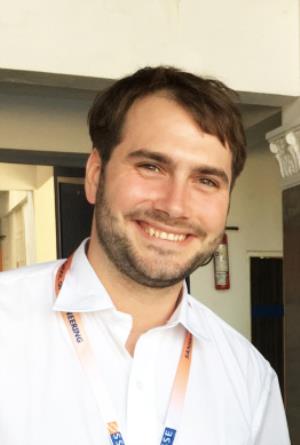
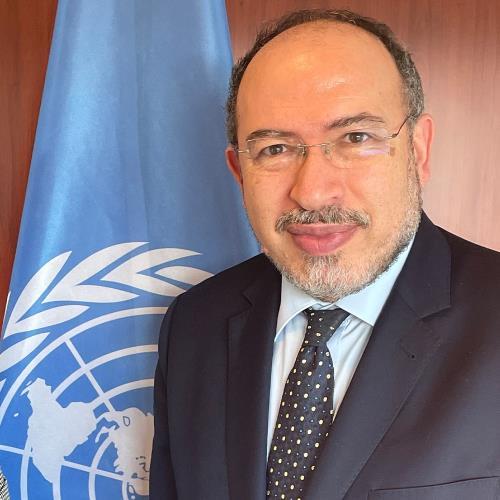
Dr. Tawfik Jelassi was appointed UNESCO Assistant Director-General for Communication and Information on 1st July 2021. In this position, he is responsible for the Organization’s programmes on building inclusive knowledge societies, leading digital transformation, strategizing the role of ICT in education, and fostering freedom of expression.
Dr. Jelassi holds a Ph.D. doctorate in information systems from New York University (USA) and postgraduate diplomas from the University of Paris Dauphine (France).
Dr. Jelassi has extensive experience in higher education, scientific research, and information & communication technologies. He held academic, corporate and government leadership positions in Europe, the USA, and Tunisia.
Among others, he was Programme Director and Professor of Strategy and Technology Management at IMD Business School in Lausanne (Switzerland, 2015 – June 2021). Prior to that, he served as Minister of Higher education, Scientific Research and Information & Communication Technologies in the democratic transition government of Tunisia (2014 – 2015). Prior appointments included being Chairman of the Board of Directors of Ooredoo Telecom in Tunisia, Dean at Ecole Nationale des Ponts et Chaussées (Paris), and Professor & Chairman of the Technology Management Department at INSEAD (Fontainebleau).
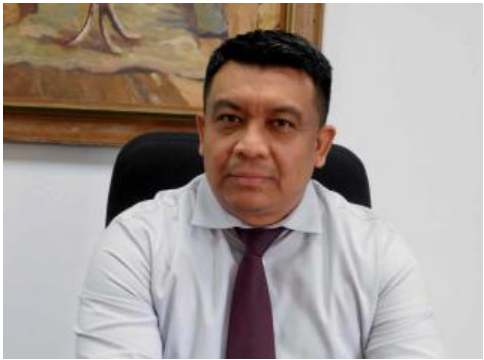
H.E. Mr. Albert Jubithana is responsible for the development and execution of strategic policies for Transport, Communication and Tourism in order to facilitate, regulate and develop sectors. He is an experienced strategic and operations professional with knowledge about project development, hospitality - and insurance industry and entrepreneurship. An effective leader and communicator who excels in coaching, financial analyses and interpretation, motivating colleagues, change management and customer relations toward accomplishment of collaborative goals. Also, a dedicated professional with a master’s education focused on management accounting.
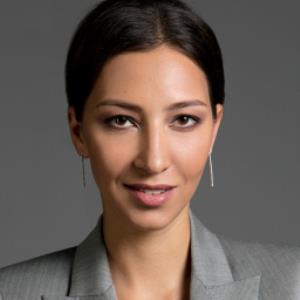
In 2008, Ms. Bella Cherkesova graduated from the Moscow State Institute of International Relations.
From 2008 to 2012 Ms. Bella Cherkesova held various positions in the press office of the Government of the Russian Federation.
From 2012 to 2020 she held senior positions in the Directorate for Public Relations and Mass Communications of the Presidential Executive Office.
On October 23, 2020 she was appointed Deputy Minister of Digital Development, Communications and Mass Media of the Russian Federation.
Ms. Cherkesova is in charge for the development of the state policy in the field of mass communications and media, publishing and poligraphy as well as implementation of the state policy measures aimed at protecting children from information harmful to their well-being.
In 2021 Ms. Cherkesova was appointed Chairman of the Commission for International cooperation of the Regional Commonwealth in the field of communications, coordinating preparation of the RCC communications administrations for Plenipotentiary Conferences of the International Telecommunication Union (ITU), World Conferences on International Telecommunications, World Telecommunication Development Conferences, World Telecommunication Standardization Assemblies and World Summit on the Information Society.
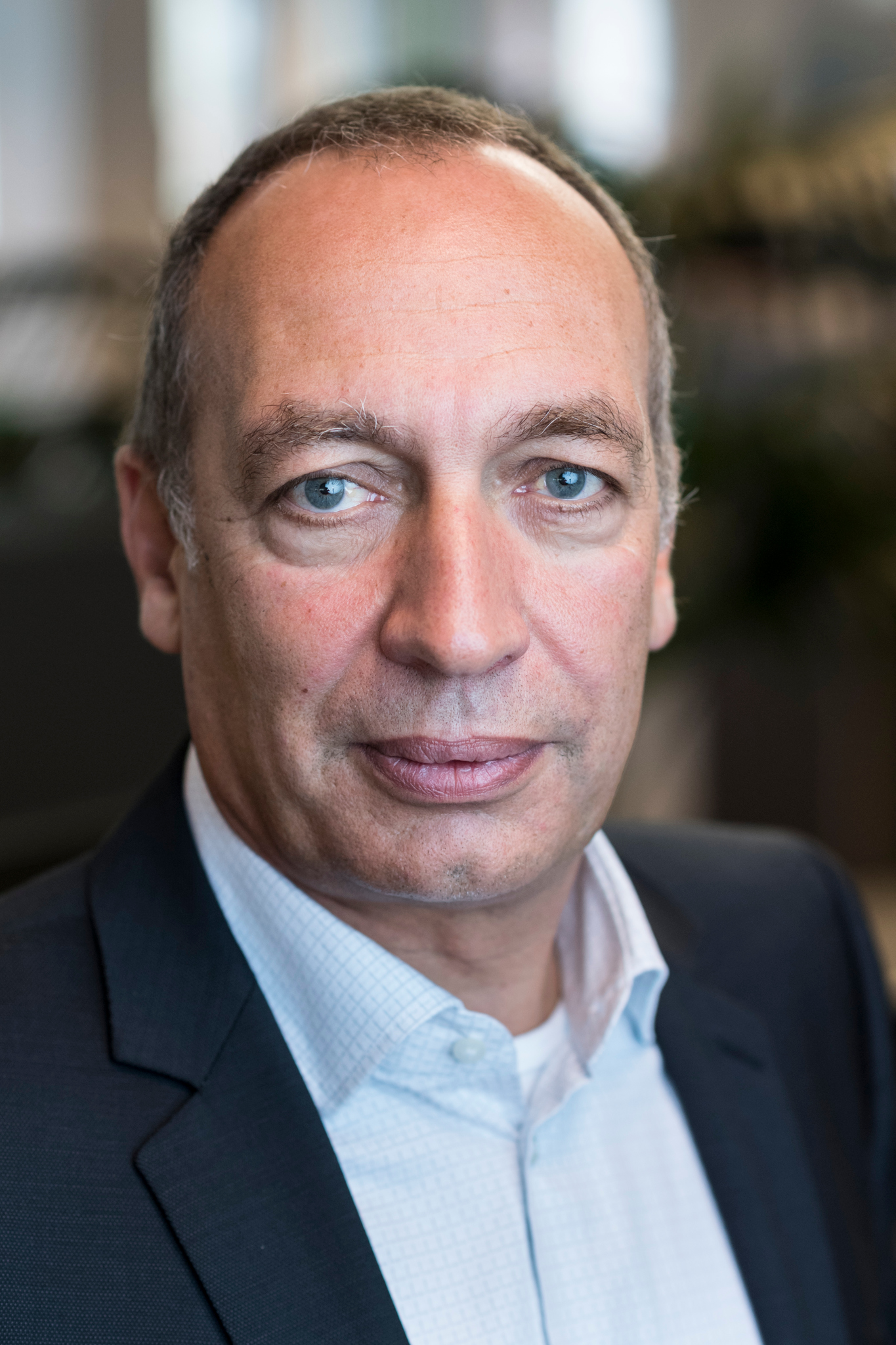.jpg?maxwidth=500)
Bernard Maissen has been Director of the Federal Office of Communications (OFCOM) since July 1, 2020. Before that, he headed the media department at OFCOM for a good two years as Vice Director.
The Rhaeto-Romanic Bernard Maissen studied German, history and journalism at the University of Freiburg and then worked in various functions as a journalist and editor-in-chief. Before moving to OFCOM, he was editor-in-chief and member of the management of the Swiss dispatch agency (sda) for 12 years.
He worked for several years on the board of the international agency network MINDS International, was a member of the program commission of the Swiss School of Journalism (MAZ) in Lucerne and was a member of the Swiss Federal Media Commission (EMEK) from 2013 until he joined OFCOM.
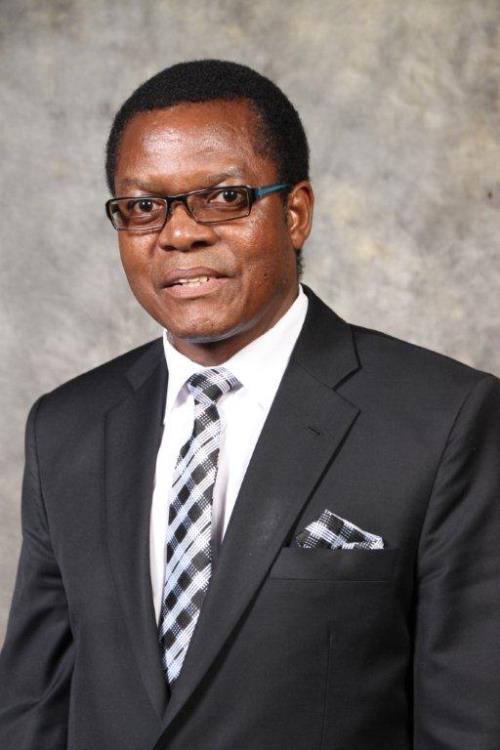
Dr Machengete is the Current Director General of the Postal and Regulatory Authority of Zimbabwe, having been appointed to the position in 2016. He holds of a Doctorate in Business Administration and Master of Business Administration Degree (MBA) from Southern Cross University, Australia, for which he graduated with distinction and was awarded the University Plaque for outstanding achievement. He also holds Bachelor of Science Degree in Economics from the University of Zimbabwe and a Diploma in Purchasing and Supply from Harare Polytechnic.
Dr Machengete was one of the first lecturers for the master’s in business leadership Degree programme at Bindura University of Science Education (BUSE), where he taught Research Methodology and Marketing Management courses from 2008 to 2016. He is currently lecturing in the Master of Science in Security and Intelligence Studies degree program, at the same University, where he is also a Research Thesis Moderator.
Dr Machengete has served on the Boards of the Traffic Safety Council of Zimbabwe (TSCZ), the Grain Marketing Board (GMB), Chimanimani Logistics and Sino Zimbabwe.
He was the Chairman of the African Advanced Level Telecommunications Institute (AFRALTI) Governing Council between March 2018 to February 2019.
He is the current Chairperson of the Communications Regulators’ Association for Southern Africa (CRASA)
He is an accomplished businessman with interests in agriculture, finance, construction and real estate.

Adriana Quiñones is the Director a.i. of UN Women´s Liaison Office in Geneva. She has held posts as Country Representative, Policy Advisor and Manager of the UN Trust Fund to End Violence against Women and Girls. She has more than 20 years of experience leading efforts in the areas of Gender Equality, Elimination of Gender Based Violence, Access to Justice and Women´s Economic Empowerment.
She has supported the creation of youth development programs, access to trade and credit for the benefit of indigenous and afro-descendant women, as well as programs to combat stigma and discrimination. She supervised for the Inter-American Development Bank and the United Nations portfolios of more 70 million in 50 countries around the world
She advised the High Commissioner for Peace in Colombia on issues of human rights violations in the context of the internal armed conflict and to address the needs of the displaced populations.
Born in Bogotá, Colombia, Adriana has a master's degree from the Kroc Institute for International Peace Studies at the University of Notre Dame, and a second Master's degree in Economics and International Development from the Johns Hopkins School of Advanced International Studies (SAIS).
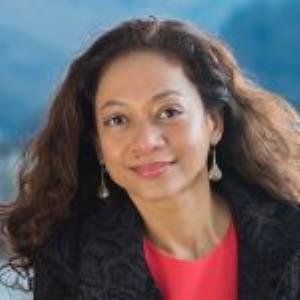.jpg?maxwidth=500)
Rinalia Abdul Rahim is Senior Vice President of Strategy, Communications, and Engagement at the Internet Society (ISOC) where she is responsible for enabling and enhancing the effectiveness and impact of ISOC in championing a bigger and stronger Internet. She leads multiple global teams and has a broad portfolio including Strategic Planning and Impact, Content and Communications, Community Engagement, External Engagement, and Training.
Rinalia has more than 20 years of experience in ‘ICT for Development’ and was instrumental in driving that agenda in developing countries. She brings significant experience on issues related to access, empowerment, and governance.

Pierpaolo Saporito is the Founder and President of OCCAM – Observatory on Digital Communication. Established in 1996 by UNESCO, associated with the United Nations Department of Public Information and in Special Consultative Status at the UN Social and Economic Council (ECOSOC) since 2005, the Observatory is devoted to the fight against poverty through the application of digital innovations. In 2001, on the verge of the Digital Revolution, he launched the Infopoverty World Conference, an annual UN Flagship event at UN hq. Ny, and since then he manages the related Infopoverty Programme that implements a series of innovative projects and best-practices in collaboration with governments, international organizations (FAO, IFAD, ITU, OMS, UNDP, UNESCO, OMS, UNDP, ) universities , NGOs e private companies. Among the most successful activities, the ICT Villages – Borj Touil launched at the 2005 WSIS Forum and the UN Millennium Village of Sambaina in Madagascar – the World Food Security e-Center for the EXPO Milan 2015 , eMedMed and the EWA-BELT Project where a series of e-services (telemedicine, e-governance, e-agriculture, e-learning) were implemented to create an e-welfare for all.
Pierpaolo Saporito chairs as President the International Council for Film and Television (CICT – ICFT) at UNESCO, that brings together the most prestigious international Associations of the sector to promote the respect of human rights, cultural heritage and diversity at festivals, cinematographic and television events, co-production projects and awards (Fellini Medal).
Expert of the epistemology of communication, Pierpaolo Saporito was Director of Musatti e Gemelli Institute for communication in Milan and co-Founder of the Infopoverty Institute at the Oklahoma University. He was also General Delegate of the celebrations of the Centenary of Cinema in 1995 and Founder of the Mediterranean Cinematic Manifestations (MCM)
As architect, he directed the projects and works of renovation of large train stations, curated the exhibition Temps des Gares at the Pompidou Centre in Paris (1979) and was member of the Italian Ministerial ad hoc Commission; as planner he designed various regional and urban projects, introducing environment resilient principles and clean energy and water harvesting solutions.
In 1969, founded the avant-garde magazine IN argomenti di design, thus launching the EnvironMedia Group, welcomed in 1976 at the Venice Biennale for the experimentations on large scale of Community Communication, awarded by the European Council.

Maya Plentz covers technology and innovation at the United Nations and its agencies, for The UN Brief, a subscription-based news platform, and a digital-first news site.
She started her career in business news as a science and technology reporter at Bloomberg TV, in New York City. Ms. Maya Plentz thrives in fast-paced, data-driven news environments.
At the UN she covered international conferences, including the first gathering of world leaders to discuss the impact of new technologies in society and the economy, the World Summit on the Information Society organized by the UN agency for telecommunications, the International Telecommunications Union, and UNESCO.
As an international affairs news producer and editor she presented the UN official daily news bulletins and weekly features, with an audience reach of 30 million+ a week through partner stations, including BBC World and Radio France International. She covered Security Council meetings, the General Assembly at the United Nations Headquarters in NYC, and all UN system specialized agencies including the WHO, FAO, UNESCO, UNICEF, and WIPO.
Ms. Maya Plentz also wrote, presented, and produced newscasts for the UN Radio website on the World Sustainable Development Summit, where she managed international teams of news producers, engineers, UX/UI designers, and software developers to deliver broadcast news content and the daily website updates.
In 2016 Ms. Maya Plentz was appointed by the European Commission to the High Level Group of Experts to review the impact of Horizon 2020, the $100 Billion Framework Programme to fund Research and Innovation in the EU, and to make recommendations for the upcoming funding cycle, Horizon Europe.
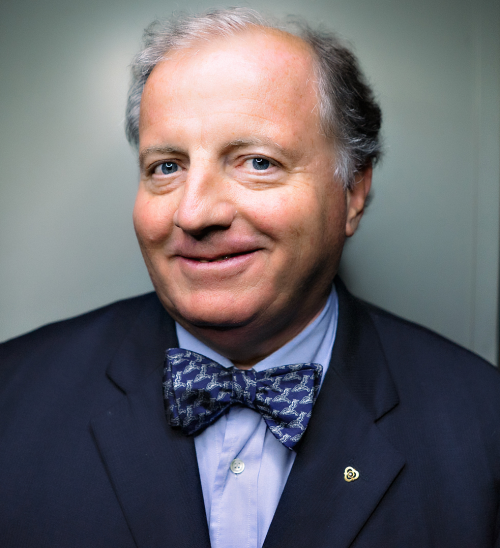
Alfredo M. Ronchi bio - professor at Politecnico di Milano (Engineering Faculty), Expert/advisor in e-Services, Head of the JRC S2D2 (Safety, Security, Defence, Disaster Recovery and Management) Politecnico di Milano, General Secretary of the EC-MEDICI Framework of Cooperation, delegate at UNESCO IFAP and active member of the WSIS since the establishment (2003-2019).
He is member WSA Grand Jury and President of eContentAward Italy, member of the Scientific Committee of Global Forum (F-USA), Sacred World Foundation (New Delhi), Fondazione Nuove Comunicazioni (Italy).
Mr Ronchi is member of the following Boards of Directors: Global Forum, World Summit Award, European Youth Award, European Education New Society Association (ENSA), Fondazione Italiana Nuove Comunicazioni. Member of the Keio University NoE. Member of the Advisory Board of the School of Law under the aegis of GD Goenka University (New Delhi, India).
Ronchi is appointed as an expert by: European Commission (EC), Council of Europe (CoE), International Telecommunication Union (ITU), Italian Association of Banks (ABI), National Research Council (CNR). National and international project coordinator.
As Secretary of EC MEDICI Framework Ronchi promoted and coordinated, among the others, the following initiatives: “On culture in a world-wide Information Society” (1999), “Long-term preservation of digital content” (1999-2007), “Digital preservation of Intangible Heritage” (2005), “Fostering the “Culture” of cybersecurity” (2015), “e-Citizens: being human in the digital age” (2019).
OCCAM (Osservatorio Comunicazione Digitale) Delegate at United Nations International Centre in Vienna (1996-2001) and United Nations headquarters in Geneva (2002-2016). Some initiatives within WSIS are: Best e-Content and Services on the occasion of WSIS 2005, 2010, 2015, High Level Policy Statements 2015, 2016, 2017 Thematic Workshops “ICTs for Safety and Security” 2016, 2017, 2018, 2019[1]. Main contributions to UNESCO IFAP initiatives in the field of: Digital Preservation, Multilingualism in Cyberspace, Linguistic and Cultural Diversity in Cyberspace, Internet and Socio-Cultural Transformations, Media and Information Literacy for Knowledge Societies, Infoethics[2].
He cooperated as organizer or programme chair in W3C, ACM, IEEE conferences; since more than thirty-five years he organizes and manages international conferences and workshops.
Author/contributor of more than 400 papers and various books on: e-Culture, IPR, e-Government, e-Health, e-Learning, and e-Services.
[1] pls refer to https://www.itu.int/net/wsis/
[2] pls. refer to http://www.ifapcom.ru/en
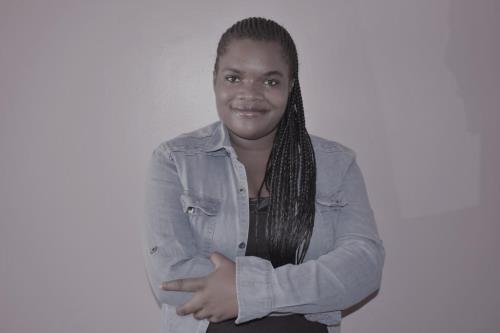
Rebecca is a techie, writer and researcher. She is currently a community engagement fellow at Mozilla, working towards building an open voice dataset in Kiswahili to promote voice technology. She is working on establishing and supporting diverse Kiswahili language and tech communities along axes of gender, age, regional origin, accent and vernacular usage towards building an open voice dataset in Kiswahili. Before joining Mozilla, Rebecca has been an Internet Society fellow, an Afrisig fellow, a Google Policy fellow, a national geographic explorer and a digital rights program officer at Paradigm Initiative.
-
 C8. Cultural diversity and identity, linguistic diversity and local content
C8. Cultural diversity and identity, linguistic diversity and local content
-
 C9. Media
C9. Media
-
 C10. Ethical dimensions of the Information Society
C10. Ethical dimensions of the Information Society
-
 C11. International and regional cooperation
C11. International and regional cooperation
-
 Goal 5: Achieve gender equality and empower all women and girls
Goal 5: Achieve gender equality and empower all women and girls
-
 Goal 9: Build resilient infrastructure, promote sustainable industrialization and foster innovation
Goal 9: Build resilient infrastructure, promote sustainable industrialization and foster innovation
-
 Goal 16: Promote just, peaceful and inclusive societies
Goal 16: Promote just, peaceful and inclusive societies
-
 Goal 17: Revitalize the global partnership for sustainable development
Goal 17: Revitalize the global partnership for sustainable development